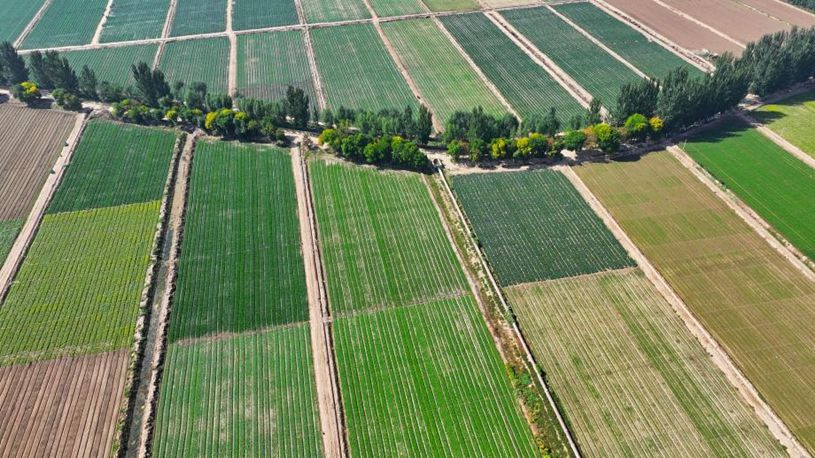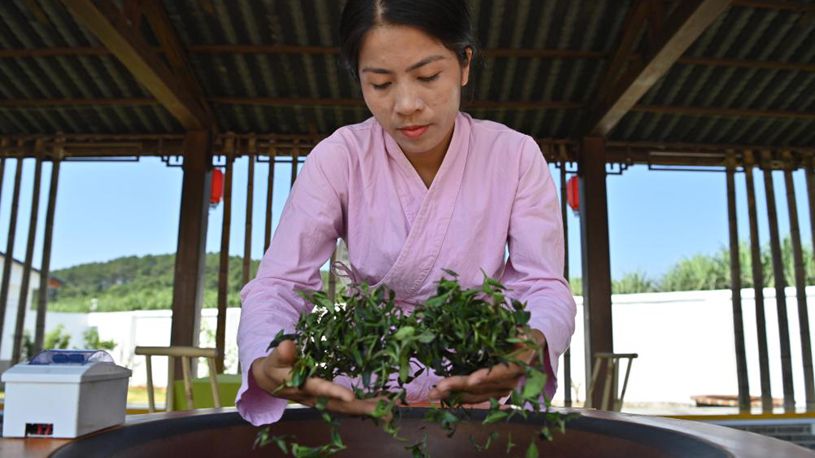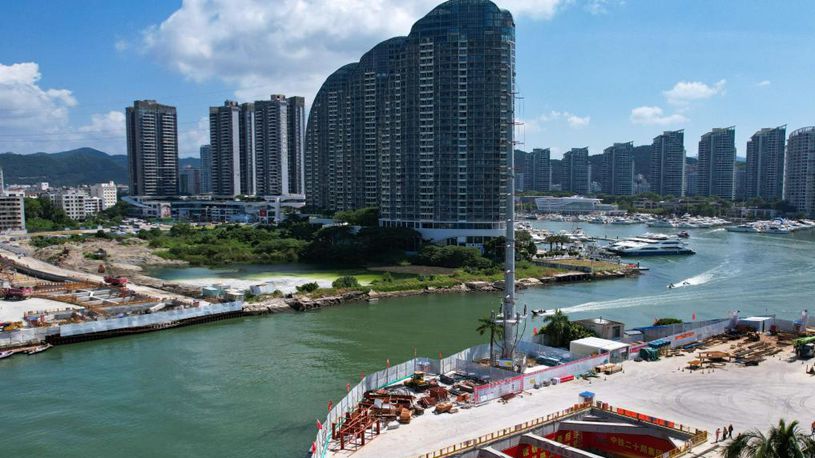by Xinhua writer Zhu Shaobin
BEIJING, Oct. 15 (Xinhua) -- In a sleek, automated workshop at the Daxing International Airport Economic Zone in southern Beijing, technicians from dental implant manufacturer CRS are meticulously checking their implants for any defects under microscopes.
CRS, a precision manufacturing company specializing in the research, production and sales of sterile dental implants, began production here last month. The firm aims to produce one million implants annually. Its products are designed to be competitive by minimizing stress on bone and soft tissues, improving structural stability and simplifying clinical procedures.
Su Hanqi, general manager of Beijing CRS Medical Device Co., Ltd., recalls that it took just an hour to choose the economic zone for their operations. "The one-stop services offered by the zone significantly reduced our efforts in navigating processes and approvals, while a range of supportive policies has fostered an exceptionally conducive entrepreneurial environment for us," Su said.
To promote the development of the medical and health industry, the economic zone and Daxing District offer policies that include monetary incentives for R&D, innovation application, mass production and space rentals.
Su said that due to the support, overall operating costs are estimated to decrease by 30 percent. "For a manufacturing enterprise like ours, being able to focus on production and R&D is crucial."
The economic zone where Su's firm operates aims to develop a series of industrial clusters in sectors such as life sciences, health, medical devices, logistics and international aviation. This aligns with the city's broader goal of becoming a global hub for scientific and technological innovation.
Data from the Beijing municipal government shows that, from January to August this year, investment in high-tech manufacturing and high-tech services grew by 72.7 percent and 19.4 percent year on year, respectively, driven by policies aimed at accelerating the development of new quality productive forces. This surge has fostered deeper integration between technological and industrial innovation, aligning with the national push for new quality productive forces.
According to the resolution adopted at the third plenum of the 20th Central Committee of the Communist Party of China held in July this year, the country seeks to establish a mechanism for ensuring funding increases for industries of the future, and improve the policy and governance systems to promote the development of strategic industries such as next-generation information technology, AI, aviation and aerospace, new energy and biomedicine, among others.
A 20-minute drive from Daxing airport is the Daxing International Hydrogen Energy Demonstration Zone, home to Hypower, one of the world's largest hydrogen refueling stations. With a maximum daily capacity of 4.8 tonnes, the station can meet the hydrogen needs of 800 hydrogen-powered fuel cell electric vehicles.
Nearby, a workshop of SinoHytec, a Chinese high-tech company specializing in the R&D and commercialization of hydrogen fuel cells, showcases fuel cells of various capacities to visitors.
According to Bao Jianpeng, deputy director of production operations at SinoHytec, the company's fuel cells have been used in more than 15,000 vehicles.
"All the components of our fuel cell systems are home-grown. Another significant breakthrough is that the fuel cells we produce, which previously could only operate above zero degrees Celsius, can now function at temperatures as low as minus 35 degrees Celsius," he said.
The demonstration zone is focused on creating an industrial ecosystem incorporating hydrogen production, storage, transportation and refueling, fuel cell and components production, as well as testing and certification services for fuel cell vehicles and core components.
The demonstration zone has already attracted over 20 enterprises in the hydrogen industry, including Hypower and SinoHytec, according to the Daxing district government. ■











